Search Results
Showing results 1 to 14 of 14

Guar Gum Slime
Source Institutions
In this activity, learners create a gelatinous slime using guar gum powder and borax. Educators can use this simple activity to introduce learners to colloids.
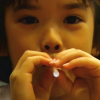
Oboe? Oh, Boy!
Source Institutions
In this activity, learners create a straw oboe to explore sound and pitch.

A Crayon Rock Cycle- Metamorphic
Source Institutions
This is part 2 of the three-part "Crayon Rock Cycle" activity and must be done after part 1: Sedimentary Rocks. In this activity, learners explore how metamorphic rocks form.
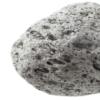
A Crayon Rock Cycle - Igneous
Source Institutions
This is part 3 of the three-part "Crayon Rock Cycle" activity. Before starting this section, learners must have completed part 1: sedimentary rock and part 2: metamorphic rocks.
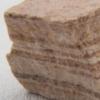
A Crayon Rock Cycle- Sedimentary
Source Institutions
This is part 1 of the three-part "Crayon Rock Cycle" activity. In this activity, learners explore how sedimentary rocks form.
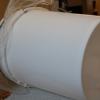
Air Cannon
Source Institutions
In this activity, learners create air cannons out of everyday materials. Learners use their air cannons to investigate air as a force and air pressure.
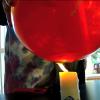
Do Sweat It!
Source Institutions
In this activity, learners explore why humans sweat. Learners compare the effects of heat on a balloon filled with air and a balloon filled water.

How Many Pennies?
Source Institutions
In this math activity, learners pretend there is a special store that lets you pay for toys by their weight in pennies.
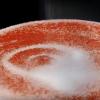
Good Vibrations
Source Institutions
In this activity, learners create a sound visualizer from common materials to help see the vibrations created by sound. Sounds from a tone generator make salt dance on a vibrating balloon membrane.
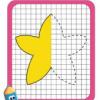
Symmetry Fold-Overs
Source Institutions
In this math activity, learners experiment with the concept of symmetry.

Static Shock!
Source Institutions
In this hands-on activity, learners explore static electricity through the use of common household products. They also explore the connection between static electricity and cold weather.
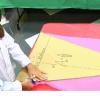
Full of Hot Air: Hot Air Balloon Building
Source Institutions
In this activity, learners create a model of a hot air balloon using tissue paper and a hairdryer. Educators can use this activity to introduce learners to density and its role in why things float.
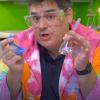
Orange Pop
Source Institutions
In this activity, learners surprisingly pop balloons without touching them using orange peels. This Mr.

Speak to Me
Source Institutions
In this activity, learners will create a speaker using a paper cup, magnet, and enameled wire. Also included in this activity is a Mr.
